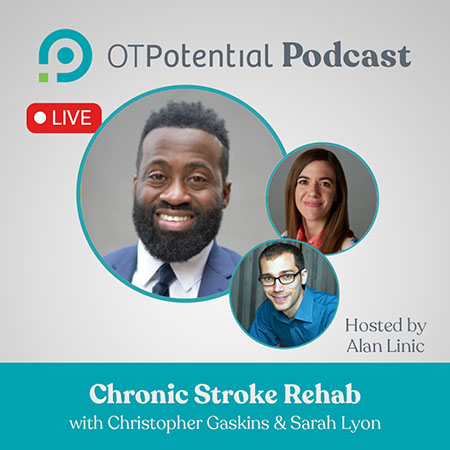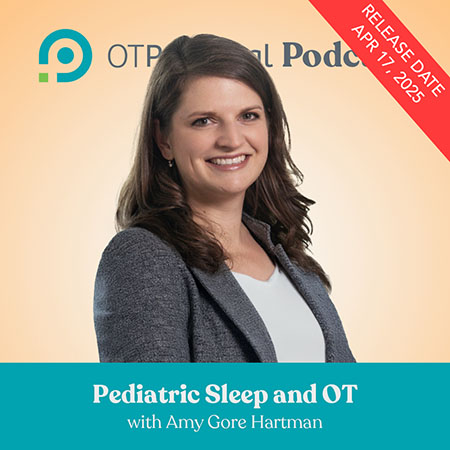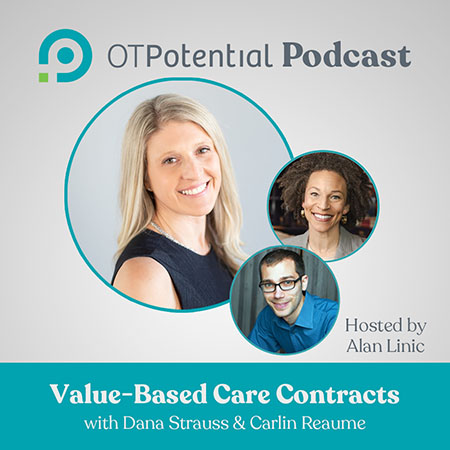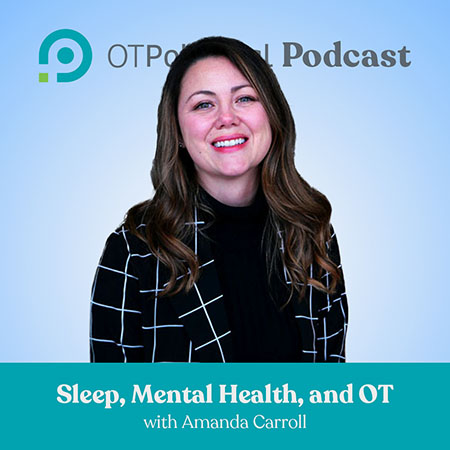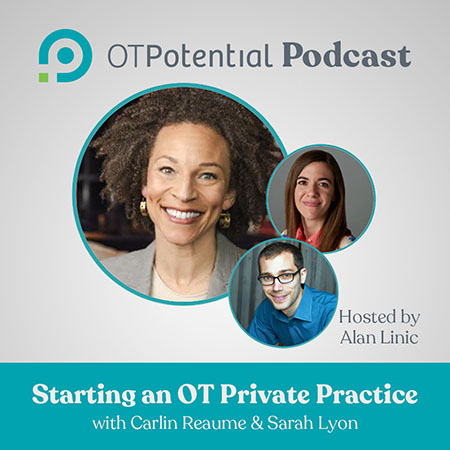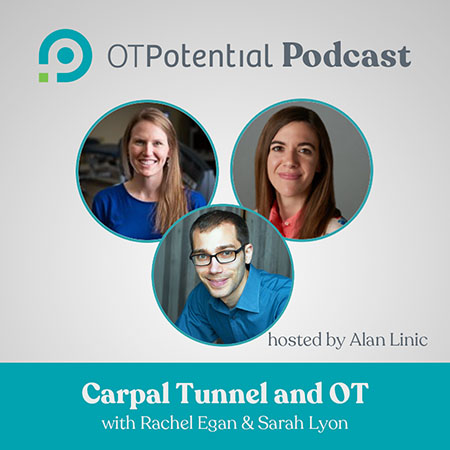Earn 1 hour of continuing education by joining OT Potential after taking this course.
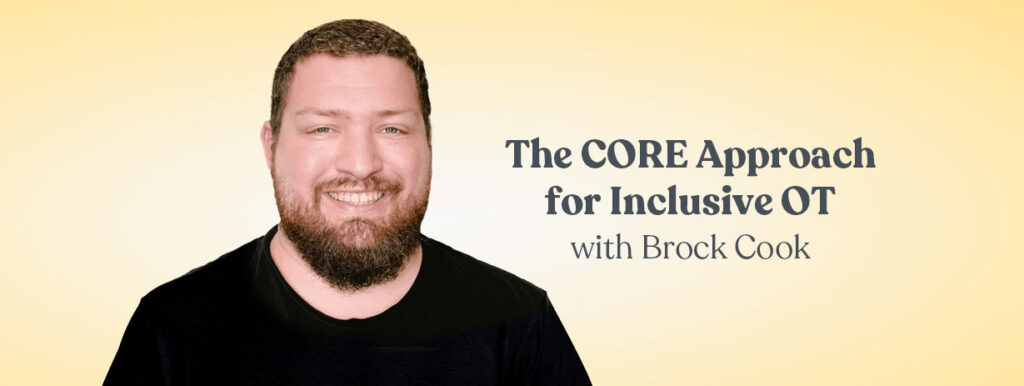
Listen: Apple | Spotify | Google
How we understand our role as occupational therapy practitioners makes a huge difference in how we show up for our clients.
But, unfortunately, some theories of OT practice fail to aid us in practical clinical reasoning that focuses on occupation.
Luckily, the theories of OT practice that are emerging are getting closer to capturing the care we aspire to deliver—and provide more useful frameworks to guide our clinical reasoning.
Today we will dive into the CORE Approach. The approach is a mechanism for OTs to understand their practice from an inclusive, occupation-centric lens. It encourages OTs to ask reflexive questions related to the “core” areas of OT: capabilities, opportunities, resources and environments.
After reviewing an article on the CORE Approach, I am excited to explore this approach more fully, with Brock Cook—an OT from Australia, where this approach was born! Brock is a lecturer at James Cook University will help us understand how the approach can make a tangible difference in your OT practice.
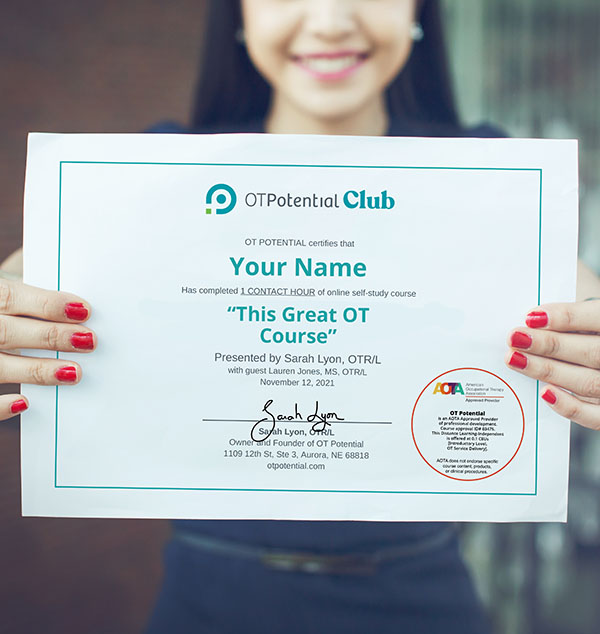
Earn 1 hour of continuing education
1. Listen to the podcast for free.
2. Sign up for the OT Potential Club.
3. Pass the quiz and download your certificate!
Primary Journal Article Explored
When you log in, be sure to check out the OT Potential Club’s written breakdown of the following research article. Then, share your questions and thoughts with fellow practitioners.
Supporting Research and Journal Articles
- Towards inclusive occupational therapy: Introducing the core approach for inclusive and occupation-focused practice
- Occupational injustice: A Critique
Learning Objectives
- You will be able to identify the four pillars of the CORE Approach.
- You will be able to recognize questions from the CORE framework that can be used to guide your clinical reasoning.
Agenda
Intro (5 minutes)
Breakdown and analysis of journal article (5 minutes)
- Why is a new occupation-centered, inclusive framework needed?
- What is the CORE Approach?
- What was the purpose of this study?
- What were the authors’ methods?
- What were the 3 narratives?
- Conclusions and discussion
- Takeaways for OT practitioners
Discussion on practical implications for OTs (with guest Brock Cook) (50 minutes)
- Can you tell us the story of how you found OT?
- How did you learn about the CORE Approach?
- Why do you think another occupation-centered approach is needed?
- What were your general impressions of the article?
- How have you found the CORE approach to be helpful in clinical practice?
- I love the theory behind “capabilities” but I don’t know if this word translates to the average OT or client. What do you think?
- Do you think we should be discussing questions from the 4 pillars with clients, or using them primarily for therapist self-reflection?
- How do you think occupation-centered practice and social inclusion go hand in hand?
- How would you like to see the CORE Approach evolve in the future?
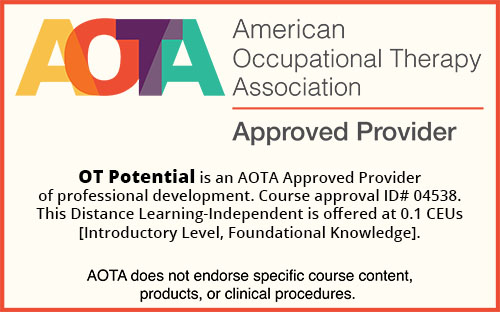
Instructional Methods/Registration/Special Needs Requests/Cancellation Policy
This course is an independent/self-study course delivered via podcast on iTunes, Spotify, Google Play & more.
If you need accommodations to take this course, please contact us and we will address your needs on an individual basis.
If we cancel a promoted course, event, live stream, or any other paid CEU offering prior to release, and you subscribe explicitly for said offering, you are eligible for a full refund if you did not complete and earn any other CEU quizzes or certificates during your subscription.
If a live webinar is cancelled that you signed up for, our system will automatically generate an email to you and if possible, we will inform you of the rescheduled date. Our most current webinar schedule will be found at: otpotential.com/live-ot-ceu-webinars.
Course Completion Requirements
In order to receive a certificate for this course, you must first participate in the podcast/webinar in its entirety. Then, you will need to take the quiz that will accompany the course and earn 75% or higher. If you pass, a certificate will be automatically generated and sent to your email. Quizzes for live (distance learning–interactive) webinars must be completed within 3 days of completing the webinar.
Target Audience/Educational Level
Our target audience is occupational therapy practitioners who are looking to learn about the CORE Approach for Inclusive OT. The educational level is introductory.
Financial and Non-financial Disclosures
It is the policy of OT Potential to disclose any financial and non-financial interest the provider or instructor may have in a product or service mentioned during an activity. This is to ensure that the audience is made aware of any bias of the speaker.
We here at OT Potential have no financial stake in this topic. Our guest, Brock Cook, also has no financial stake in the CORE Approach.
Speakers
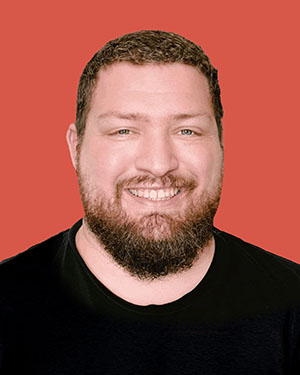
Brock Cook, OT:
Brock has been an Occupational Therapist for 10+ years. He has experience working in acute mental health inpatient and with community mental health rehabilitation services. He has extensive experience delivering education on mental health using innovative approaches including podcasts and webinars.
He currently works as an Associate Lecturer for James Cook University in Townsville and is the host of the Occupied Podcast. Read full bio.

Sarah Lyon, OTR/L:
Sarah’s passion is helping fellow OT practitioners translate evidence into daily practice. Sarah earned her BA in religion from St. Olaf College, then earned her master’s degree in occupational therapy from New York University in 2011.
Since then, she’s worked in numerous facilities, including a critical access hospital, an acute trauma hospital, and a state inpatient psychiatric hospital. Sarah is the founder/owner of OT Potential. Read more about OT Potential here.
This course was designed to meet your continuing education requirements
We designed the courses in the Club to meet the requirements for “online” and “independent/self-study” courses. To verify the requirements from your specific state (within the US), check out our post, OT Continuing Education Requirements. If you are outside of the United States and have questions, please contact us.
We are proud to be an AOTA Approved Provider and to meet the requirements for your NBCOT renewal.
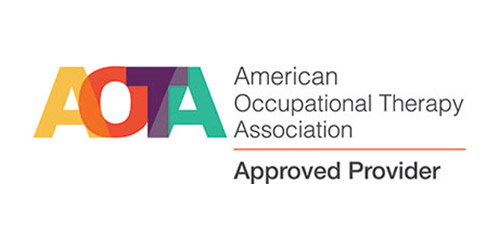
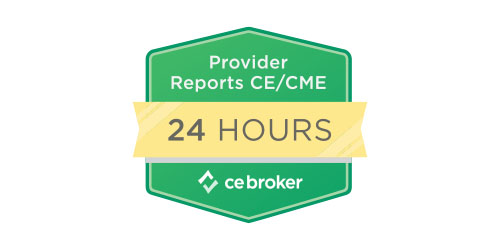
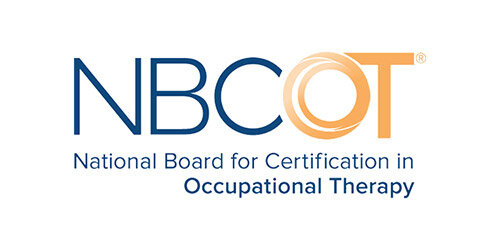
See our other OT courses!
The CORE Approach for Inclusive OT • OT Potential
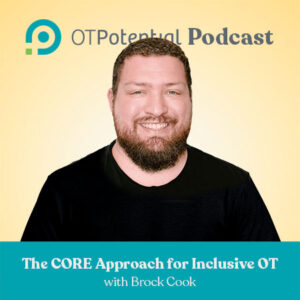
Today we’ll be covering “The CORE Approach for Inclusive OT.” We’ll look at new research and discuss it with Brock Cook, OT.
Course Provider: Organization
Course Provider Name: OT Potential
Course Provider URL: https://otpotential.com/
Course Mode: Online
Start Date: 2022-05-02
Duration: 01:00:00
Course Type: Subscription
4.87

